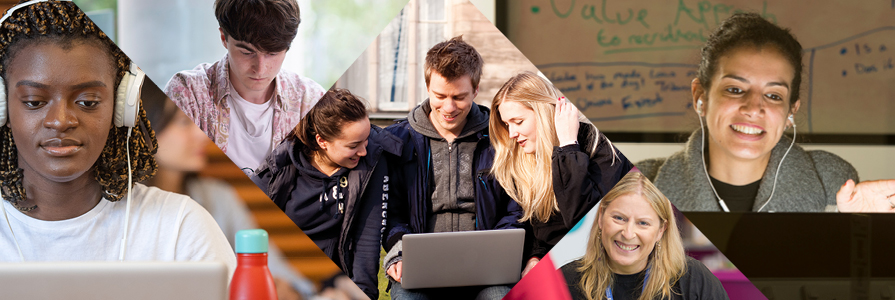Dr Tim Storer, Director of Knowledge Exchange & Impact at the SICSA research pool and Dr Ali McIntosh, Director of SULSA, on a pandemic innovation with growing benefits for research.

Initially, the creation of the Coffee Break at RIS was driven by immediate need. At the outset of the pandemic, a lot of the core activity of the Pools to promote collaborations across institutions and disciplines became difficult or impossible: in-person workshops, sandpits and bilateral exchanges just wouldn’t be feasible for the foreseeable future. The Pools are led by a combination of academics and research management professionals, who recognised that the informal aspects of these activities are a vital way of sparking new ideas and collaborations. We wanted to recreate the opportunity to have a short, informal, no commitment conversation with someone unexpected whilst standing in the queue for a hot drink at a workshop or university meeting.
In addition, the restrictions of the pandemic meant that many of our researchers had suddenly become very isolated. Early careers researchers in particular were more likely to be living by themselves. There was considerable concern as to what impact this might have on mental health and general welfare. We wanted to help create opportunities for social interaction for our colleagues, as much as professional discussions.
For The Coffee Break, researchers from across the RIS network of Research Pools could sign up for up to three coffee break meetings at a time. We asked them to indicate their preference for which other research pool they would like to be matched with and matched people as enquiries came in. We then helped participants to schedule a call that wasn’t expected to last more than 15 minutes. We did a lightweight follow-up afterwards to see what the outcome was.
We deliberately avoided matching based on anything other than disciplines of interest, so for example, a PhD student in Veterinary Science could be matched to a professor in Computing. The point is that both parties commit 15 minutes of their time to learn about another researcher at any stage of their career, as well as their interests and focus.
Most of the time these conversations lead to absolutely nothing concrete, and that’s as it should be. Not every conversation in the Coffee Break is going to lead to a Horizon Europe application, but there is often a wide range of benefits. Participants might learn about career opportunities (perhaps that first post-doctoral role they’ve been seeking) or somebody is interested in acting as a joint supervisor on a new interdisciplinary PhD project.

Another benefit of a Coffee Break is access to somebody else’s network: the person you are speaking to may not be the right fit for something you are seeking to do, but they may well know someone who is and be willing to match you up themselves. The Coffee Break is therefore a short-term mechanism for strengthening and deepening grass roots networks across institutions and disciplines, providing an infrastructure for the emergence of new collaborations in the longer-term future.
The Coffee Break began as an immediate response to the pandemic. However, we now recognise that the mechanism can have a longer-term role and impact. Hearing from academics who can help in finding new collaborators overseas is really valuable, especially for those early in their career. Armed with this knowledge, SULSA (the Scottish Universities Life Sciences Alliance) launched the SULSA International Coffee Breaks in 2022. These Coffee Breaks connect researchers between Scotland and Germany and aim to seed new collaborations between the two countries with clear pathways to collaborative mobility and research funding.
We see a scheme that began life as a short-term fix can now have a substantial impact on the grassroots of research for Scotland’s institutions and our ambitions as a global research hub. We also recognised that many of these relationships can form by chance.
Dr Tim Storer, Director of Knowledge Exchange and Impact, SICSA; Dr Ali McIntosh, Director, SULSA – 17 Mar 2023